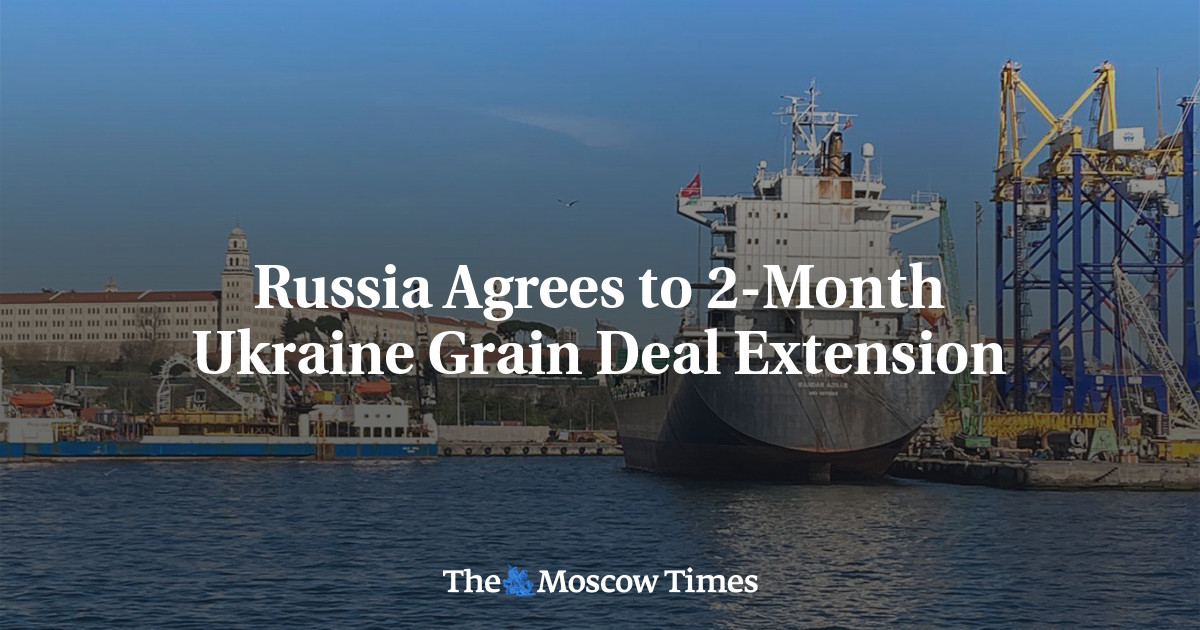
Russia has agreed to extend the Ukraine Black Sea grain deal for another two months, Turkish President Recep Tayyip Erdogan announced Wednesday, just a day before a 60-day extension agreed to back in March was set to expire.
“Our Russian friends said that they will not interfere with Turkish ships leaving [Ukraine’s] ports. We thank them for this,” Erdogan said.
The latest extension comes a week after talks in Istanbul between senior officials from Russia, Ukraine, Turkey and the United Nations.
Russia’s Foreign Ministry confirmed the grain deal’s extension shortly after the Turkish leader’s announcement, but added that “disparities” in the agreement “should be corrected as quickly as possible.”
“We welcome the continuation of the initiative’s work, but we emphasize that it has to work effectively,” Ukraine’s deputy prime minister Oleksandr Kubrakov wrote on Facebook Wednesday, accusing Russia of sabotaging the inspection and registration of ships involved in the agreement.
UN Secretary General Antonio Guterres also welcomed the Turkish-brokered agreement to extend the pact.
“These agreements matter for global food security; Ukrainian and Russian products feed the world,” Guterres said, while stressing the need for a more comprehensive, longer-term agreement.
Earlier this week, Russian officials had cast doubts on a possible extension of the grain deal, as they had during previous extension talks.
Moscow has regularly voiced discontent with the deal, arguing for the removal of Western sanctions that make it difficult for Russia to export its grain and fertilizers to the world.
Kremlin spokesperson Dmitry Peskov said Wednesday that he would not enter into “hypothetical discussions” on what Russia would do if the deal lapsed.
The United Nations and Turkey brokered the grain deal for an initial 120 days last year to help tackle a global food crisis that has been aggravated by Moscow’s invasion of Ukraine, one of the world’s leading grain exporters.
An additional 120-day extension of the deal was agreed upon in November last year, which was then extended again, but for just 60 days as Moscow issued a list of demands regarding its own agricultural exports.
“I want this decision to benefit all sides. We will continue our efforts into the future, fulfilling all conditions of the agreement,” Erdogan added during the Wednesday announcement, indicating that talks were liking to resume in the summer.
NATO member Turkey has worked to maintain good ties between Russia and Ukraine, hosting two early but ultimately unsuccessful rounds of peace talks between the warring sides.
The diplomatic overtures have boosted Erdogan’s domestic political message of providing responsible statesmanship and increasing Turkish influence in the world.
“Putin gives Erdogan another diplomatic win ahead of the 28 May presidential election run-off,” Emre Peker of the Eurasia Group consultancy wrote on Twitter.
AFP contributed reporting.